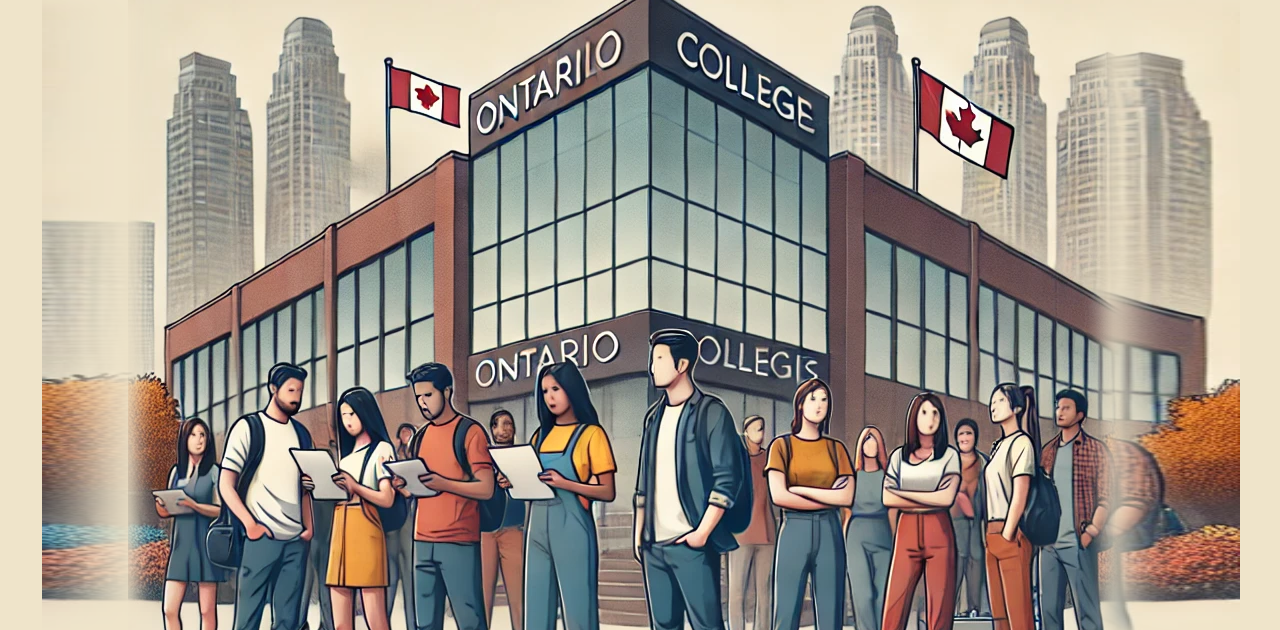A decision by the federal government to limit work permits for international students attending public colleges in Ontario is being met with strong resistance, as the province’s colleges argue that the move unfairly prioritizes university graduates and will worsen existing labor shortages. In a heated response, Colleges Ontario has condemned the new policy as a form of "elitism" that will undermine Ontario’s economic growth and exacerbate pressing workforce needs.
In separate but similar open letters to Immigration Minister Marc Miller, Colleges Ontario’s President and CEO, Marketa Evans, highlighted the negative impacts of the policy, which comes into effect on November 1st. Under the new rules, international students attending colleges in Ontario will no longer automatically qualify for post-graduation work permits (PGWP) — a key feature that previously made Canada a top destination for international education. Now, only students pursuing courses linked to a federal list of occupations in long-term shortage will be eligible.
“This decision does nothing to address the labor market needs of Ontario, which vary significantly from region to region,” Evans wrote. “Ending work opportunities will exacerbate labor shortages, stall economic growth, and damage the province’s ability to compete globally.”
Policy Change Sparks Backlash
The backlash from Ontario colleges comes amid a broader restructuring of Canada’s international student program, aimed at aligning it more closely with the country’s labor market goals. According to Miller’s office, the new parameters for PGWP eligibility are based on human capital and labor market considerations, targeting a more strategic approach to immigration. University graduates will still be eligible for work permits of up to three years, but for college students, the criteria will be much stricter.
The change has caused significant concern for Ontario’s 24 publicly funded colleges, who say that excluding their graduates from these permits will hurt key sectors such as healthcare, skilled trades, transportation, construction, and manufacturing — all of which depend on college-trained professionals. Evans pointed out that more than 1,800 international students were enrolled in personal support worker programs last year, and nearly 1,000 studied to become practical nurses.
“Without them, these sectors will face further strain, making it harder for Ontarians to find affordable childcare and healthcare close to home,” the letter noted.
Ontario’s Government Joins the Criticism
The Ontario Ministry of Colleges and Universities has also expressed frustration, criticizing the lack of consultation by Ottawa on a policy change that will significantly impact the province’s education sector. A ministry spokesperson emphasized that the decision would “undercut the availability of workers who sustain Ontario’s economy and prosperity.”
The new work permit restrictions follow an earlier move by the federal government to impose a 10 percent reduction in international student intake for 2024, which has already put additional pressure on Ontario’s colleges. The province, which has the highest concentration of international students in Canada, is now grappling with the financial and operational impacts of reduced student numbers.
Colleges: ‘National Approach Fails to Account for Regional Needs’
Evans and Colleges Ontario argue that the new policy unfairly discriminates against college students in favor of university graduates, describing it as a form of “elitism.” They argue that many colleges offer high-demand training for sectors such as mining, agri-business, tourism, hospitality, and aviation, which play crucial roles in regional economies but are not always included in national priority lists.
“Colleges Ontario urges meaningful consultation with the province as a national approach will certainly miss important economic drivers,” Evans wrote. “Simply put, this policy undercuts the availability of workers who sustain Ontario’s economy and prosperity.”
Despite Ottawa’s assurance that some in-need sectors — including healthcare and skilled trades — are exempt from the recent changes, the college group remains unconvinced. They argue that the restrictions still create a two-tiered system that favors university education, ignoring the essential role that college graduates play in addressing specific regional labor needs.
What’s Next?
The federal government is expected to release a detailed list of eligible fields of study in the coming weeks. This list will determine which college programs qualify for work permits under the new system. While the immigration ministry claims the changes will help international students find meaningful work and improve their opportunities for permanent residence, Ontario’s colleges warn that the fallout could be severe.
“Ontario’s public college graduates are integral to solving well-known and pressing labor shortages in healthcare, childcare, automotive, dental care, skilled trades, transportation, construction, energy, manufacturing, and more,” Evans stated.
As the November 1st deadline approaches, Ontario’s colleges are calling for a collaborative approach to ensure that regional economic needs are met and that the value of their graduates is recognized on par with university students. With economic growth and essential services at stake, the debate over Canada’s international student policies is far from over.

